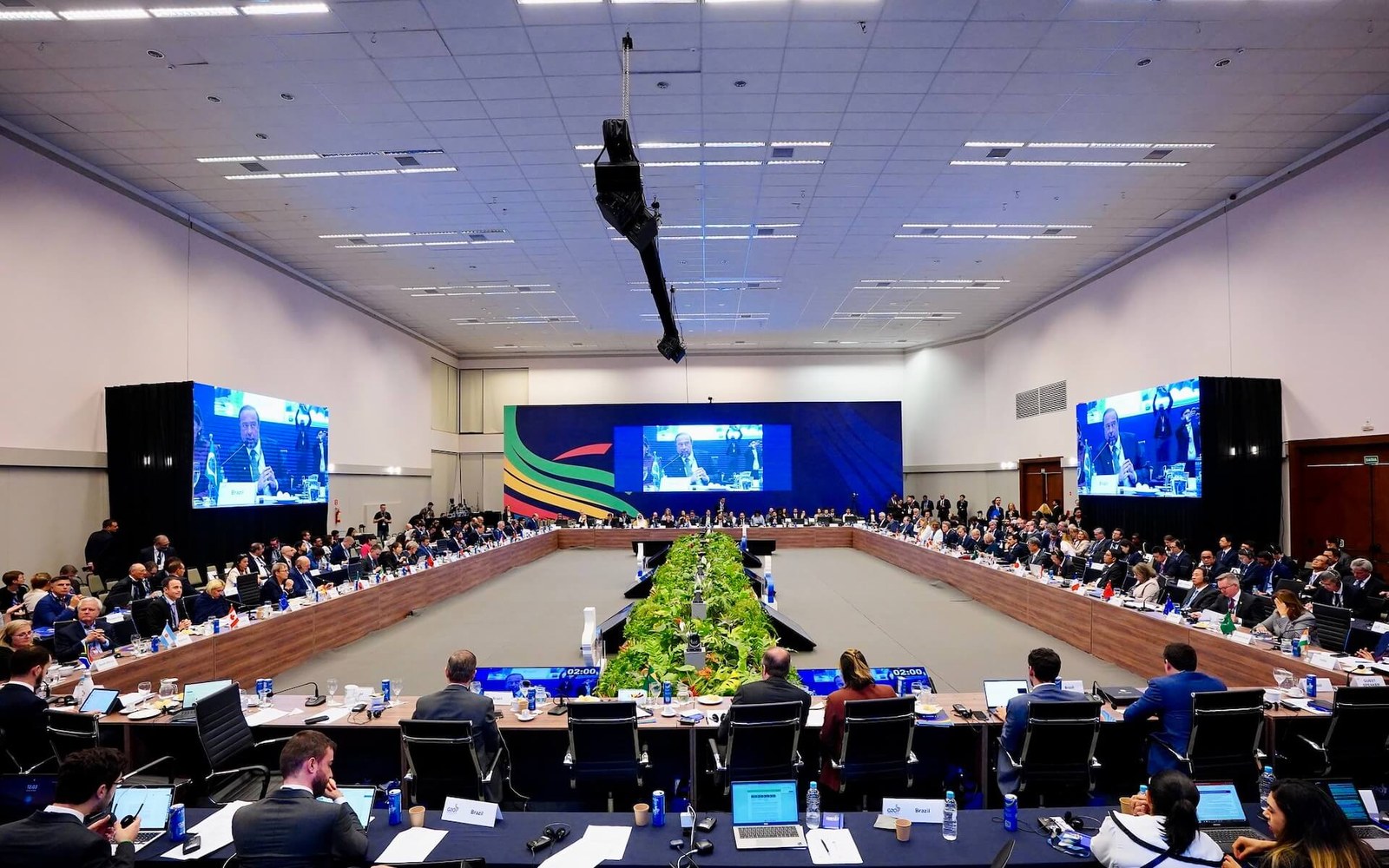Energy Transitions Working Group reaches consensus in Foz do Iguaçu
Since 2021 there has been no consensus in the working group on energy and the members recognize the energy inequalities and challenges that exist in the current global landscape, especially those faced by developing countries. In addition to the ministerial declaration, principles for just and inclusive energy transitions were approved.

After a week of intense work, the member countries of the Energy Transitions Working Group reached a consensus and committed to fostering clean, sustainable, fair, accessible and inclusive energy transitions. Focusing on including all people, especially the poor and those in vulnerable situations. The ministerial declaration of results was presented on Friday, October 4th, the last day of the meeting in Foz do Iguaçu, in the Brazilian state of Paraná.
The members also recognize the energy inequalities and challenges that exist in the current global landscape, in particular those faced by developing countries. At the same time, it is necessary to ensure energy security, market stability and universal access to sustainable energy for all.
Since 2021 there has been no G20 consensus on energy. According to Alexandre Silveira, Minister of Mines and Energy, this demonstrates Brasil's ability to dialogue and practice diplomacy. Last night, the team pored over documents until 4 a.m. Following heated debates, the ministerial declaration was unanimously approved. “It is an essential document for the planet, fundamental for sustainability, for global protection and for the economic aspect, as it involves generating jobs and income. It's also important for decarbonizing the energy mix, especially in the transport and industry sectors,” said the minister.
Principles for just and inclusive energy transitions, including tripling renewable energy capacity and doubling the average annual rate, were also approved. Commitments were also made to accelerate and achieve universal access to clean cooking methods by 2030. The document also addresses investing in affordable and reliable solutions and exploring efficient mechanisms for cost allocation in energy solutions and their impact on energy costs, focusing on leveraging resources. The group agreed on working to facilitate affordable financing in developing countries for innovative technologies and business models, to share the benefits and help mitigate the impact of energy transitions, especially for the poorest segments of the population.
Mariana Espécie, coordinator of the Energy Transitions WG and special advisor to the Ministry of Mines and Energy (MME), pointed out that Brasil worked on a text that sought to internalize a series of developments aligned with the priorities of Brasil’s G20 presidency. For her, the idea is to collectively advance towards the several ways to achieve a transition. “We need to think about how to do things, how to replace fossil fuels. We need to think about new fuels that can replace them and think about appropriate business models. Which technologies are already ready for this? Is there any room for improvement? We need to think about it in detail,” she said.
According to Mariana, there is a bottleneck for access to financing, although the numbers have increased year after year. However, it is still far below what is needed, and investments are not going to developing countries. Most of the resources are directed to established markets. This shows that a just and inclusive transition is moving slowly, and thus the importance of Brasil's presidency proposals endorsed today.